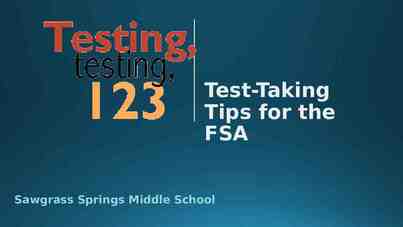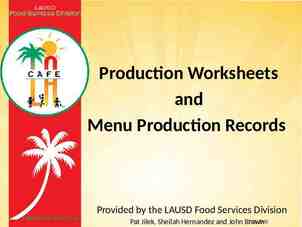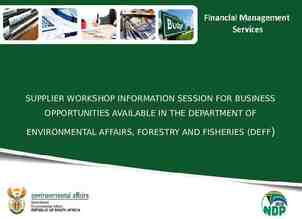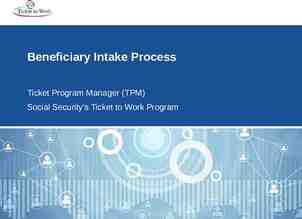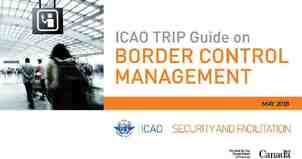TACTYC 2015 How can the child’s voice be effectively ‘heard’
17 Slides335.26 KB

TACTYC 2015 How can the child’s voice be effectively ‘heard’ and facilitate change within a locality of Children’s Centres in England? Alison Moore University of Worcester

Context & Positionality: 34 Years in Early Years: Field of Social Care, Child Protection and Family Support Quality – Registration & Inspection, Ofsted, NCMA Children Come First Networks Teaching & Learning – Principle Lecturer and NVQ Coordinator FE BA in Further &Higher Education Sure Start (2002) Children’s Centre Lead & Extended Services Coordinator (2005) NPQICL (2006) MA Early Childhood (2009) Leadership of group of Centres & Locality Manager (2015) Outstanding 2011 & 2014 (new framework)

Marie Colwell 8 (1973) Child deaths in England Victoria Climbié 6 (2000) Jasmine Beckford 5 (1984) Khyra Ishaq 7 (2008) Keanu Williams 2 (2011) Baby P Peter Connolly 1½ (2007) Daniel Pelka 4 (2012)

Sparkbrook Locality: Children Centres in England Community Based Early Intervention, Parenting and Family Support – from pregnancy to school age Reducing Health Inequalities Narrowing the Gap - Quality Early Years Provision –2,3,4 year old funding Child Poverty & Worklessness

There is a strong commitment, grown out of a set of deep rooted principles, good practice models and research that places the child at the centre of our work Study has a key focus, relevance to current policy developments and a strong platform from which to investigate

Objectives: Critically Investigate strategies for enabling child voice (lit review and identifying strategies to adopt) Critically analyse the strategies through assessing their effectiveness and validity in enabling child voice and facilitating change Refine strategies and/or synthesise and develop new strategies

Literature Review: Child Protection Discourse Child Rights Discourse Quality Practice Discourse Child Well-Being Discourse

Theoretical and Conceptual Frameworks: Concept of ‘child’ and ‘childhood’ Children as Social Agents in a discourse of Citizenship Brofenbrenner’s Ecological Systems Theory (1979) Bourdieu’s concept of Habitus (1990) Oliveira Formosinho and Formosinho Pedagogy-inParticipation (2012)

Ethical Practice within Research Gaining Informed Consent from the Gatekeepers The Practitioners The Parents Gaining Children’s Assent Dissent – the right to withdraw

Pilot 1, National College School Leadership My Personal Positioning: Quality Improvement Partner – Children’s Centre System Leader Theoretical Concepts under consideration: Pedagogical Leadership Aubrey (2011) ‘Inner Leadership’ McDowell & Murray (2012) Relational Pedagogy Papatheodorou & Moyles (2009) Ecological Systems Theory Bronfenbrenner (1979) Pedagogic Isomorphism (2000) Community Learning Freire (1970)

Pilot 2, Pedagogical Mediation My Personal Positioning: Pedagogical Mediator Theoretical Concepts under consideration: Pedagogical Transformation Foucault (1998) Pedagogy of Lentitude Formosinho (2003-2009) Sociocultural and activity theory Vygotsky (1978)

Pilot 3, Case for Change Testing participatory tools Ethnographic Research with Families My Personal Positioning: Sparkbrook Locality Innovative Leader Theoretical Concepts under consideration: Collaborative Leadership Chrislip & Larson(1994) Communities of Practice Wenger (2004) Co-construction of meaning & direction Sergiovanni (1999) Pedagogical Praxis Formosinho (1998) Collaborative enquiry McNiff & Whitehead (2002)

Key Findings Building open, trusting relationships is key for Pedagogical Praxis Process of Transformation must be Felt, Dialogued and Reflected in Companionship Pedagogic Isomorphism creates learning opportunities for 'educators' that credits them with respect, agency and participation so that they can create similar opportunities for children. Children's Agency is premised on the belief that children are capable of making sense of their views they are entitled to express their

Data Analysis Data Collection Methods Methodology Children’s Drawing Mosaic Approach Co-Constructed research with children as researchers Developing cultures of meaningful participation with Children Learning Stories Draw – your – day Child Interviews Concept Analysis Thematic Analysis Using Cameras to listen to children Tours Conferencing Parent, staff, children interviews Observation Piecing together information for dialogue, reflection and interpretation Thematic Analysis Narrative Assessments Observations Photographes Video Learning Journeys – Child Progress Analysis of discourse

Summary Good start in life for children growing up in area of 97% level of deprivation and poverty Creating a community approach with emphasis on the here and now What do children need from society today in their everyday lives? Child rights with an emphasis on well-being Cultural change through pedagogic mediation Whole family well-being approach, enabling all children to maximise their capabilities

Bibliography: Abbott, L. and Rodger, R. (1994) Quality Education in The Early Years Buckingham: Open University Press Abbott, L. and Nutbrown, C. (2001) Experiencing Reggio Emilia Buckingham: Open University Press Anning, A. Cottrell, D. Frost, N. Green, J. Robinson, M. ( 2006) Developing Multiprofessional Teamwork for Integrated Children’s Services Buckingham: Open University Press Archard,D (1993) Children’s rights and childhood, London: Routledge Aries,P (1986) Centuries of childhood:a social history of family life, London:Penguin Books Arnold,C (ed) (2012) Improving Your Reflective Practice through Stories of Practitioner Research London: Routledge Bright, D.S., Cooperrider, D.L., and Galloway, W.B. (2006) Appreciative Inquiry in the Office of Research and Development: Improving the Collaborative Capacity of Organization. Public Performance and Management Review, 29(3), pp. 285-306. Bertram, T. and Pascal, C. (2001) Early Excellence Centre Pilot Programme: Annual Evaluation Report 2000, DfEE Bourdieu,P (1990) In logic of Practice. Cambridge: Policy Press Brookfield,S. (1995) Becoming a Critically Reflective Teacher San Franscisco: Jossey-Bass Bronfenbrenner, U. (1979) The ecology of human development. Cambridge,MA: Harvard University Press Carr, M. (2001) Assessment in Early Childhood Settings – Learning Stories London: Sage

Bibliography: Clark, A. Moss, P. ( 2001) Listening to Young Children: The Mosaic Approach London: National Children’s Bureau & Joseph Rowntree Foundation Clark, A and Moss,P (2005) Spaces to Play: More listening to children using the Mosaic Approach, London: National Children’s Bureau Clark, A. Kjorholt, A. Moss, P (eds) (2005) Beyond Listening: Children’s perspectives on early childhood services Bristol: The Policy Press Dahlberg, G. Moss, P. Pence, A. ( 1999) Beyond Quality in Early Childhood Education and Care – Postmodern Perspectives London: Routledge Field, F. (December 2010) The Foundation Years: preventing poor children becoming poor adults. The report of the Independent Review on Poverty and Life Chances Oliveira Formosinho, J. and Formosinho, J. (2012) Pedagogy-in-participation: childhood association educational perspective. Lisbon: Aga Khan Foundation. Lancaster, P. (2003) RAMPS: a framework for listening to children. London: Daycare Trust Malaguzzi, L.(2000) The Hundred Languages of Children, Reggio Children Moss, P. Petrie, P (2002) From Children’s Services to Children’s Spaces: Public Policy, Children and Childhood. Oxon: Routledge Falmer Pascal, C & Bertram (1995) Effective Early Learning Case Studies in Improvement London: Hodder & Stoughton Palaiologou,I (2012) (Eds) Ethical Practice in Early Childhood. London: Sage Wenger, E (1998) Communities of Practice: Learning, Meaning and Identity. Newyork: Cambridge University Press


